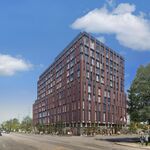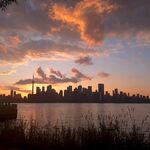This is about people, not rights, not road configurations, not technologies, not safety standards. People. The sad truth is you can't change people.
Sorry, but that's demonstrably incorrect. When we put in bike lanes on Jarvis, the number of cyclists tripled in a month. Sure sounds like infrastructure causes change to me. A 3X increase is a damn slight more than the increase we're getting from telling people bikes are good for the environment so they should sacrifice their safety on an unpleasant road.
People choose the transport method which is most convenient to them. Very few people are going to choose to bike if it is slower and less pleasant than driving. If we build infrastructure that makes cycling fast, comfortable and safe, people will cycle.
It's actually that simple.
This is not an issue of people having an ideological objection to human powered vehicles, it's just that the current built form is car oriented, so we use cars.
And no, the Netherlands didn't tear down their suburbs and build dense forms, but they didn't need to either. Unlike transit, cycling is not heavily dependant on density because even in a low density environment, most trips are easily cyclable. Even when I lived in Vaughan, I would almost never travel more than 5km away from my house. Sure, there are people who commute 30km and such, but it is not the norm in many parts of the city. And even for these people cycling can be an effective option: I assume they don't travel across the city to get their groceries for example.
In the Netherlands, and even those with very long commutes include cycling. I know someone who commutes from a suburb of Utrecht into the centre of Den Haag: cycling to the train station, taking the regional train to Utrecht, then the intercity train to Den Haag. This is possible because there is excellent cycling infrastructure leading to the station, tons of secure bike parking at the station, frequent train service into the city, and fast and frequent service between cities.
Besides, proper infrastructure can effectively increase people's cycling range by reducing the number of stops that are necessary. For example, there is no reason for cyclists to need to stop when crossing the top of a T intersection. Taking little steps like this reduces the effort people exert while cycling, allowing them to use it instead to extend their range or travel more quickly.
Similarly, if you build infrastructure where everyone has to fight for road space, everyone will fight for road space. That's what has happened here. That's why you don't see that much complaining about pedestrians: they're on their own sidewalk, not bothering anyone.




